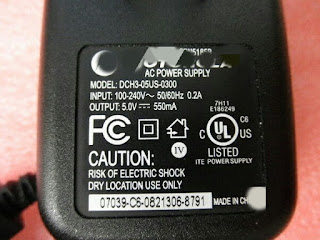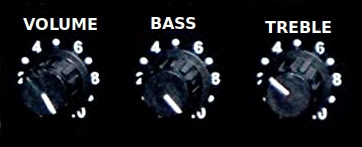West Bengal PSC Previous Year BIOLOGY Questions with Answers Part-3
In this post we list West Bengal Public Service Commission's asked BIOLOGY related questions with detail answers. This is Par-3.
Part-1 CLICK HERE
Part-2 CLICK HERE
Part-4 CLICK HERE
Actually this is the part of our WBPSC SCIENCE Series . Under this series we collect and segregate WBPSC asked science questions into PHYSICS , CHEMISTRY, BIOLOGY , COMPUTER . The questions are arranged topic wise.
ENDOCRINE & EXOCRINE (Hormone etc.)
Q. Ductless glands secrete
[WBPSC Miscellaneous Exam-2012(1st)]
- Blood
- Tissue fluid
- Enzyme
- Hormone
D. Hormone
Explanation:
- Endocrine glands are also known as ductless gland because the secretion of these glands are directly released into blood.
- Endocrine glands (ductless glands) secrete hormones.
- Exocrine glands release their products through duct.
Q. Mammary glands are modification of
[WBPSC Miscellaneous Exam-2012(1st)]
- Sweat gland
- Sebaceous gland
- Salivary gland
- Lacrimal gland
A. Sweat gland
Explanation:
- Mammary glands are modification of sweat glands.
- Mammary glands are exocrine gland.
- It produce milk in females.
Q. Insulin is secreted from
[WBPSC Miscellaneous Exam-2012(2nd)]
- Kidney
- Pituitary gland
- Pancreas
- Thyroid
C. Pancreas
Explanation:
- Insulin is secreted from pancreas.
- Insulin helps to control the glucose levels in blood.
Q. An endocrinologist deals with:
[WBCS Preliminary Exam-2015]
- Teeth
- Glands
- Epidemics
- Heart
B. glands
Explanation:
An endocrinologist is a doctor who treats disease related endcrine system (glands, organs that makes hormones).
Q. Target tissue of insulin is
[WBCS Preliminary Exam-2016]
- Red Blood Cell
- Kidney tissue
- Small intestinal tissue
- None of the above
D. None of the above
Explanation:
- The major target tissue of insulin are liver, the skeletal muscles and adipose tissue.
- Insulin allows the cells in that tissues to absorb glucose presents in blood.
BLOOD
Q. Hemoglobin is
[WBPSC Miscellaneous Exam-2012(2nd)]
- a copper compound
- a cobalt compound
- a magnesium compound
- an iron compound
D. an iron compound
Explanation:
- Hemoglobin is an iron compound found in red blood cell (RBC).
- Hemoglobin helps to carry oxygen in blood.
- It gives red colour to the blood.
- Hemocyanin is a copper compound.
Q. Who has been consider as universal blood donor person?
[WBPSC Miscellaneous Exam-2018]
- Person having O group blood
- Person having A group blood
- Person having B group blood
- Person having AB group blood
A. Persons having O group blood
Explanation:
- Persons having O negative blood group are considered as universal blood donor.
- Persons having AB+ blood group are considered as universal blood recipient.
Q. Life span of red blood cells is _______ days.
[WBCS Preliminary Exam-2018]
- 60
- 120
- 80
- 240
B. 120
Explanation:
- Lifespan of red blood cell (RBC) is 120 days.
- Lifespan of white blood cell (WBC) is 13 to 20 days.
- Lifespan of platelet is 8-9 days.
Q. Amount of O2 normally carried by 100 ml of pure human blood is
[WBCS Preliminary Exam-2018]
- 40ml
- 10ml
- 20ml
- 30ml
C. 20ml
Explanation:
- Generally, 1g hemoglobin can carry 1.34ml O2.
- Normally, 100ml blood contain 15g hemoglobin.
- So, 100ml blood carry
15✕1.34=20.1ml O2.
EYE
Q. Distorted vision (Astigmatism) can be corrected by suing which one of the following lens?
[WBPSC Miscellaneous Exam-2018]
- Cylindrical lens
- Convex lens
- Concave lens
- Bifocal lens
A. Cylindrical lens
Explanation:
- Astigmatism is corrected by cylindrical lens.
- Hypermetropia (long-sightedness) is corrected by convex lens.
- Myopia (short-sightedness) is corrected by concave lens.
- Presbyopia is corrected by bifocal.
Q. An ophthalmologist deals with
[WBCS Preliminary Exam-2016, 2018]
- Kidney
- Liver
- Eyes
- Heart
C. Eyes
Explanation:
- An ophthalmologist is a doctor who specializes in eye and vision care.
- A cardiologist is a doctor who specializes in heart.
- A nephrologist is a doctor who specializes in kidney and its diseases.
- A hepatologist is a doctor who specializes in problems associated with liver, gallbladder etc.
HEART
Q. In which year the first human heart transplantation took place?
[WBPSC Miscellaneous Exam-2018]
- 1947
- 1957
- 1967
- 1977
C. 1967
Explanation:
On 3rd December, 1967, the first successful human heart transplantation was taken place in Cape Town, South Africa. The surgeon of this was Christian Barnard.
Q. ECG records
[WBCS Preliminary Exam-2019]
- Rate of heart beats
- Potential difference
- Ventricular concentration
- Volume of blood pumped
B. Potential difference
Explanation:
- ECG is the short form of Electrocardiogram.
- Electrocardiogram is the process of making an ECG.
- ECG is a graph of voltage versus time of electrical activity of the heart.
RESPIRATION
Q. Muscle fatigue is due to accumulation of
[WBCS Preliminary Exam-2018]
- Carbon dioxide
- Creatinine
- Lactic acid
- Ethyl alcohol
C. Lactic acid
Explanation:
Lactic acid is a byproduct of anaerobic respiration.
At the time of intensive physical workout body needs much amount of oxygen for producing high amount of energy. If there was less amount of oxygen supply at that time, huge amount of lactic acid is formed.
This lactic acid is the main reason of muscle fatigue.
Q. Which one of the following organs is the main respiratory organ of Wheal?
[WBCS Preliminary Exam-2018]
- Integument
- Gills
- Lungs
- Trachea
C. Lungs
Explanation:
- Whale is a mammal.
- The main respiratory organ of wheal is lungs.
- It does not have gills and that is why, whale cannot breathe in under water.
BONE
Q. An orthopedist deals with
[WBCS Preliminary Exam-2017]
- Eyes
- Lungs
- Bones
- Childbirth
C. Bones
Explanation:
- An orthopedist deals with bones.
- An ophthalmologist deals with eyes.
- A pulmonologist deals with lungs.
- An Obstetrician deals with childbirth.
NERVOUS SYSTEM
Q. The number of spinal nerves in human body are
[WBCS Preliminary Exam-2019]
- 12 pairs
- 31 pairs
- 31
- 12
B. 31 pairs
Explanation:
- The number of spinal nerves in human body is 31 pairs.
- The number of Cranial nerve in human is 12 pairs.
WBPSC Previous Year BIOLOGY Questions with Solution Part-1
WBPSC Previous Year BIOLOGY Questions with Soluton Part-2
WBPSC Previous Year BIOLOGY Questions with Answers Part-4
WBPSC Previous Year CHEMISTRY Questions with Solution



Comments
Post a Comment